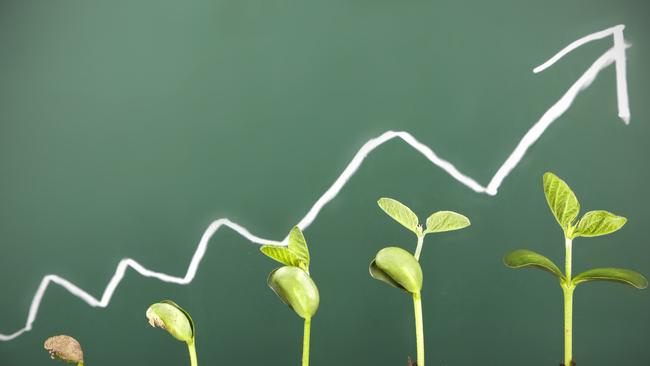ESG investments tipped to reach $100bn within five years
The pandemic looks set to accelerate the shift of Australian investors towards companies with better ethical records.

The coronavirus pandemic looks set to accelerate the shift of Australian investors towards companies with better records on environmental, social and governance issues, driving impact investments to grow in value to an estimated $100bn over the next five years, according to a new report.
The Responsible Investment Association Australasia’s new report — Benchmarking Impact: Australian Impact Investor Insights, Activity and Performance Report 2020 — to be released on Tuesday shows the level of impact investing by superannuation funds, banks, family offices and fund managers has more than tripled over the past two years to almost $20bn.
The report, which brings together a study of 125 Australian investors accounting for $1.722 trillion of the country’s assets under management and a study of 111 impact investment products widely offered to Australian investors at December 31 last year, says 92 per cent of investors believe that their impact investments are meeting or exceeding their financial return expectations.
The study, conducted for RIAA by Deakin University Business School, found the investors surveyed wanted to increase their allocation towards impact investments to $100bn over the next five years in sectors such as clean energy, housing, health and wellbeing, education and conservation.
RIAA CEO Simon O’Connor said: “As evidence mounts that companies with better records on social issues, environmental sustainability and good governance are more resilient to COVID market turbulence, this study shows a market delivering strong financial returns, while also positively impacting the lives of tens of thousands of people.”
The vast majority of impact investment products are dominated by green, social and sustainability bonds ($17bn), while the remaining $2.9bn in impact investments held by Australian investors comprise real assets ($2.2bn), private debt ($287m), public equity ($195m), private equity ($97m), social impact bonds (SIBs) ($66m) and others ($44m).
“This study charts the significant growth in investor awareness and interest in impact investing over recent years, as Australian investors increasingly see the strong performance of many impact investment products, as well as respond to the increasing demand from their clients and customers for their money to deliver positive impact and avoid harm,” Mr O’Connor said.
“Responsible investment has gained mainstream traction in financial markets and the next iteration will require investors to demonstrate the real-world outcomes they are generating through their investments.”
The study found the $20bn allocated to impact investment had included the building of 32,000 homes for people on low incomes, living with disability or transitioning out of homelessness; producing 84,000 GWh renewable energy and delivery of 788,000 healthcare treatments.




To join the conversation, please log in. Don't have an account? Register
Join the conversation, you are commenting as Logout